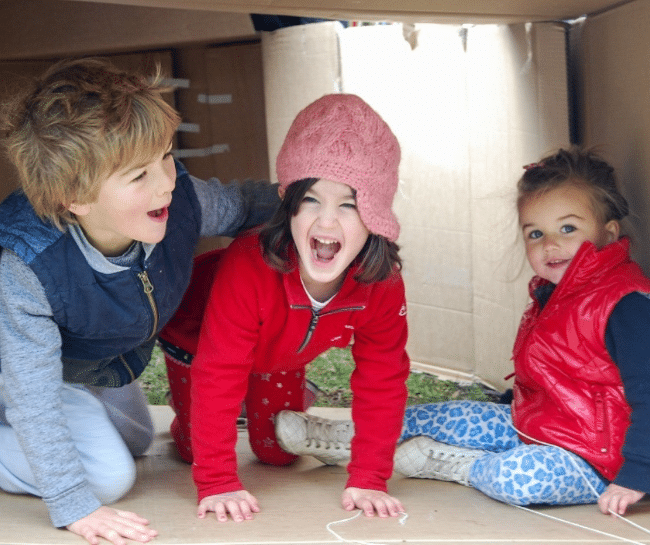I have a theory that loud kids are happy kids. While it’s not applicable to all situations, it tends to work.
For example, birthday parties are always excruciatingly loud. Kids playing in the pool, also unbelievably loud. Toddlers with balloons inevitably results in excited shrieks of delight. Teenagers recounting a funny story, talking over each other to the point of yelling. Even a good board game doesn’t keep a group of happy kids quiet. I think my only exception is reading, but even then, a kid that is really enthralled in a story will gasp, laugh, or pause to recount to the nearest person the funny/ scary/ thrilling plot or dialogue.
I live across the road from a park and can often hear kids. I love it. I can’t hear the words, but I can hear the joy, excitement and challenges and it always makes me smile. These kids are having fun, interacting with each other, and making noise in the process. There is a basketball ring there too and I’m more than happy to hear balls bouncing and hitting backboards because I know there isn’t a better way for older kids to spend their free time than shooting hoops at the park – especially in the evening and especially if we consider what the alternatives might be.
I also love to hear toddlers talking (which could often be mistaken for yelling) in shops and cafes as they learn to navigate and communicate. The point is that kids shouldn’t be quiet, and we shouldn’t expect them to be (in most situations). As a society we should be welcoming of children and accepting of the noise that comes with them.
Adults will often use screens (phones, Ipads, online gaming, etc) as a way of keeping kids occupied and quiet. I respect the fact that sometimes this is a necessity. I’m thinking of parents needing to take an important call, or a mum needing 20 toddler-free minutes to breastfeed the new bub. I know the quiet it creates, and I also know the difficulties and challenges that it creates.
There are plenty of tips available for managing screen time, balancing it with non-screen-based activities and reducing screen time related meltdowns. My organisation offers some excellent resources and tips on these topics. We also have some wonderful apps that take families outdoors and into nature. These are all great tools, yet many families still struggle with screen guilt.
Some of the contributing factors to this guilt is that we have different opinions and reasons for letting our kids use screens, coupled with the expectation that kids should be quiet. Many parents feel the pressure of this expectation in social settings and resort to the use of screens as a silencer.
Teenagers and little ones understandably would rather reach for a phone than sit passively listening to hours of adult conversation at a cafe or sit unengaged in their prams. My suggestion is rather than reaching for the phone as the first resort, we should work to make them feel a part of the situation. This isn’t just the responsibility of parents, in fact, parents can’t do it alone. As a non-parent in social situations, we can set the tone of inclusion.
Early in my parenting I was provided the most generous example of this. I was in the situation where I needed to bring my four-year-old to a work meeting. It was a last resort. I packed a bag full of things for her to play with, eat and drink, and we talked about using nice manners and letting mummy have time to talk in a desperate attempt for me to get through the meeting looking professional and competent. To my delight and surprise, the person that I was meeting with brought a little purse with some plastic coins for my little one. It was a gift to my child which she loved and played with during the meeting, but it was also the most generous gift to me. It was a gesture that demonstrated support for me and a warmth towards my child.
Making a child feel included and valued (and parent feel supported) doesn’t require physical gifts. There are many ways to achieve this – talking with them, asking their opinions, and asking about things they like to do (refrain from asking about school and commenting on their outfits). For little ones, do things they like to do, go for a little walk, engage in some silly antics, do some drawing. I’m keen to see a shift away from screens at tables and more conversations, drawing, colouring and card games, not because I despise screens, but because it’s more inclusive and fun. These kinds of activities help build conversation and relationships and make kids feel valued.
My suggestion is that next time you are in a social situation with kids, see if you can get them talking and smiling, feeling included and valued. And if you see an adult reach for a phone to pass to their child, let’s not judge as sometimes we all just need a break.

